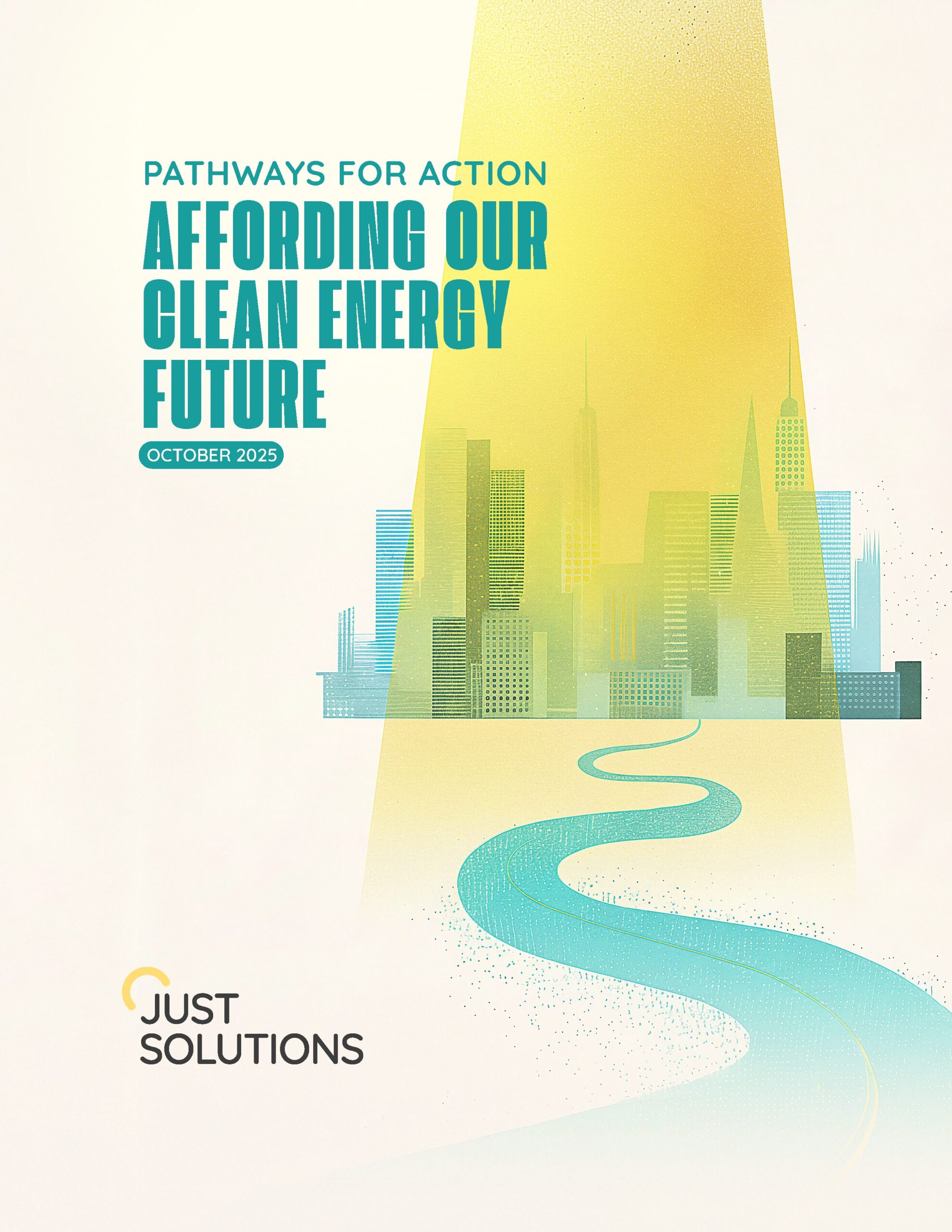
Pathways for Action: Affording Our Clean Energy Future
A framework of policy solutions that can help states find a path to an enduring, equitable, and affordable clean energy future
Pathways for Action
Across the country, households are struggling to pay for mounting energy costs. From state to state, the costs of everything from mitigating wildfires to integrating new data centers loads are driving up utility bills. States now face an urgent need to address energy costs—and to do so in a lasting way that ensures long-term bill savings and continues to accelerate the transition to a clean energy future.
Just Solutions wrote Affording Our Energy Future: Pathways for Action to support our partner organizations, state and local policymakers, and communities across the country as they navigate these challenges. This report outlines some of the underlying causes of unaffordable energy bills and lays out a framework of policy solutions—including household protections, decarbonization investments, and utility reform measures—that can help states find a path to an enduring, equitable, and affordable clean energy future.

Key Takeaways
- Energy cost burdens and energy insecurity are particularly high for certain populations and regions across the U.S., such as for low-income households, communities of color, and people living in rural areas. The main drivers of bill increases that are creating a strain for families are the climbing cost of living, historic disinvestment in housing and energy infrastructure, barriers to energy efficiency programs, intensifying climate change that exacerbates household energy consumption, higher prices of fuel and electricity generation, and flawed utility rate design.
- By developing a portfolio of energy affordability solutions to match each state’s needs, states can provide near-term support to help households afford their energy bills while developing multi-year plans that simultaneously advance clean energy goals and mitigate long-term energy affordability risks.
- Policies to address affordability and help ensure access to reliable, affordable clean energy include a mix of utility reform and accountability, household protections, residential decarbonization policies and programs, and novel funding and financing strategies.
- The design of equitable policies to ensure access to affordable, clean energy requires that equity principles be incorporated into the development, implementation, and evaluation of these policies.
Authors
- Elena Krieger, PhD, Senior Director of Research and Policy
- Lew Daly, Senior Fellow
- Arjun Makhijani, PhD, Senior Fellow
- Jennifer Moon, PhD, Senior Researcher
About Just Solutions
Just Solutions is a national climate organization that partners with communities disproportionately impacted by climate change to turn their priorities and ideas into policies and laws. Our goal is to broaden and deepen the understanding and implementation of equitable and effective climate policies and programs at a scale and pace that match the urgency of the climate crisis. Learn more at our website, justsolutionscollective.org.

